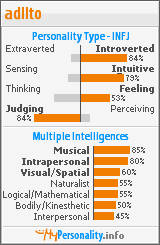 I happened Saturday to watch the 1949 movie The Fountainhead staring Gary Cooper as an idealistic or individualistic architect bringing in Modernism to architecture single handed! The film comes from Ayn Rand's book of the same title and refers to her statement that "man's ego is the fountainhead of human progress".
I happened Saturday to watch the 1949 movie The Fountainhead staring Gary Cooper as an idealistic or individualistic architect bringing in Modernism to architecture single handed! The film comes from Ayn Rand's book of the same title and refers to her statement that "man's ego is the fountainhead of human progress".
The movie was troubling for me as I considered it because Rand set up a false conflict situation between submission to the collective will and individualism as selfishness. The book and movie (she wrote the screen play as well) became a convenient vehicle for portraying her views — that the Ego is supreme, and human progress depends on individualism. (see my earlier posts on compassion vs competition). Gary Cooper's character is portrayed heroically as a figure of integrity and victim of collectivity. In fact his legal defence speech towards the end of the movie is an unbelievable 6 minutes long because of Rand's demands that it not be shortened or cut. (See it here at youtube) I believe the speech is an declaration of her viewpoint.
I am indebted to Wikipedia which helped we work out what was problematic.
"Rather than using "selfish" in describing choosing one's interests over and against the welfare of others, she described an act as "selfish" if it remained true to one's ideals against the influence of history and society. "Selflessness" is the concept of losing one's self, not merely acting without regard for one's self or in the interest of others, but as being unable to determine and form one's desires and opinions."The message is iconic of the American values or at least the Modernist ones. There is a condemnation of sentimentality and compassion as enemies of reason and they manipulate the heart rather than engage the mind. There are aspects of self-creation and identity in individualistic terms. Rand seems unable to embrace attachment and issues of responsibility, obligation and the collective good. Paradoxically I found also an American jingoism of The America We Love as an undertow because we value the self made man!
The problem is that the lone individualist eventually needs to belong wants to be accepted! One of the history's ultimate theoretical individualists, Jean, Paul Sartre, who declared that Hell is other people, eventually became a communtarian. In contrast Christian spirituality to reach a true self is to give self away, to have selflessness, to find one's meaning or purpose in living in the call of God. But this is not in Rand's terms an oppressive conformity rather a new freedom because as Henri Nouwen stated “My hope is that the description of God’s love in my life will give you the freedom and the courage to discover . . . God’s love in yours.”
This is no longer an enclosed world in which the individual is trapped, but instead a universality of creativity with the idea of growing the other, that we ourselves could be the water or soil for others to step out to discover themselves.









